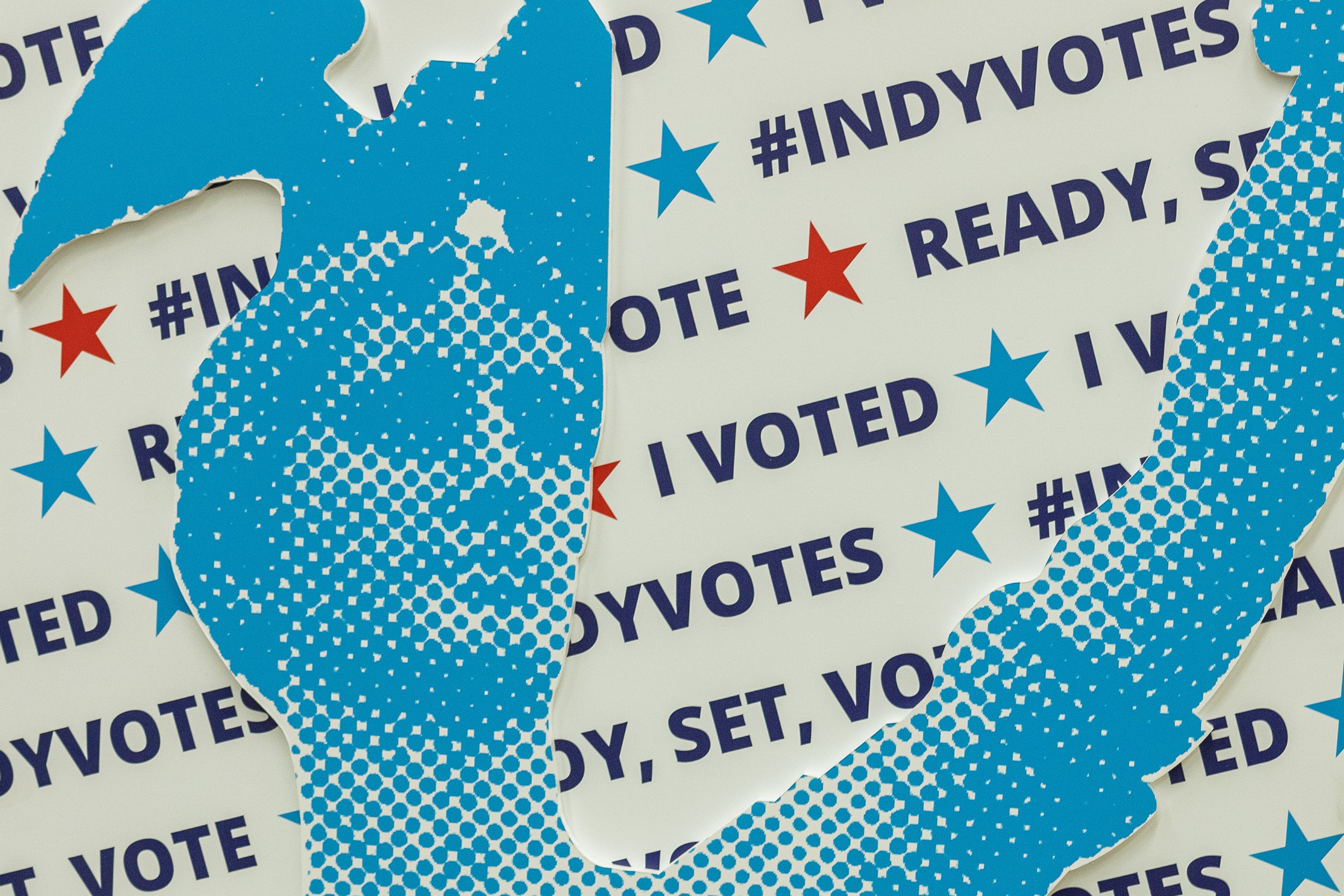Sign up for Chalkbeat Indiana’s free daily newsletter to keep up with Indianapolis Public Schools, Marion County’s township districts, and statewide education news.
Updated: 10:45a.m. May 8
Voters gave their approval for Pike Township schools to raise property taxes in order to fund district operations and programs that had relied on federal COVID relief funding.
With the measure passing, the district will become the first to share some of its property tax revenue with eligible charter schools as mandated by a 2023 state law.
Unofficial results as of 10 p.m. Tuesday in Marion County show around 59% of voters approving the Pike tax referendum. The vote tally was 5,417 in favor and 3,799 against, with 100% of county vote centers reporting.
Three other districts in Indiana had tax referendums on the ballot during Tuesday’s primary election.
According to unofficial results, around 52% of voters approved a referendum from Fremont Community Schools, with a vote tally of 935 to 874 as of Wednesday morning.
And around 55% of voters approved a referendum from Brown County Schools 2,122 to 1,754.
Meanwhile, around 83% of voters rejected a referendum from Blue River Valley Schools in Henry County. The vote tally was 884 to 179 as of 9:45 p.m. Tuesday.
Districts can seek ballot measures to raise tax revenue to fund operations and construction, as well as school safety. Each district with a referendum this year hoped to use at least some of the dollars to attract and retain staff, as well as fund programs, and more.
The referendums need a simple majority to pass.
We’ll keep updating this story with results as they become available.
Metropolitan School District of Pike Township
Property tax rate: $0.24 per $100 of assessed property value for eight years
Estimated annual revenue: $14.5 million
If approved, the district could have to share some funds with eligible charter schools.
Unofficial results:
Yes: 58.8%
No: 41.2%
Blue River Valley Schools
Property tax rate: $0.19 per $100 of assessed value for eight years
Estimated annual revenue: $359,594
Unofficial results:
Yes: 16.8%
No: 83.2%
Brown County Schools
Property tax rate: $0.10 per $100 of assessed property value for eight years
Estimated annual revenue: $1,879,051
Unofficial results:
Yes: 54.7%
No: 45.3%
Fremont Community Schools
Property tax rate: $0.15 per $100 of assessed property value for eight years
Estimated annual revenue: $2,384,719
Unofficial results:
Yes: 51.7%
No: 48.3%
Correction: May 7, 2024: A previous version of this story gave an incorrect figure for the annual revenue that Brown County schools’ referendum would raise. It would raise around $1.9 million.
Aleksandra Appleton covers Indiana education policy and writes about K-12 schools across the state. Contact her at aappleton@chalkbeat.org.





